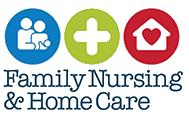Check your smoke alarm works
See how well you do!
On the first day of every month remind adults to press the button on your smoke alarm to check it still works. If you press the button and there is no sound, change the batteries.
If your smoke alarm goes off by mistake, do not take the batteries out.
Remember! The batteries need changing every year.
Have you made an escape plan?
Think about how to get out safely. A smoke alarm will warn you about a fire. Make sure you know what to do if your smoke alarm goes off. With your family, take a few minutes to make and practice your escape plan. Want to know how to make a plan? Click here!
What if you cannot get out?
If you cannot get out of the house, get everybody into one room. This is known as a safe room.
It should have a window and a telephone.
Then phone 999, give the address and tell them which room you are in and who is in the room. Block the gaps at the bottom of the door to stop the smoke from coming in and get to a window and shout for help.
Phone 999 for the Fire Service
Don’t try to put out fires yourself. Phone 999 and ask for the Fire Service. Be ready to tell them where you live.
If your clothes are on fire…
Do not run about, it will make the fire worse.
Lie down and roll around. The fire will get smaller.
Remember STOP-DROP-ROLL












